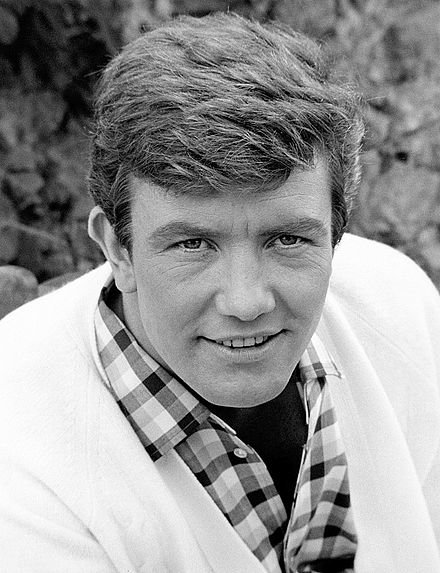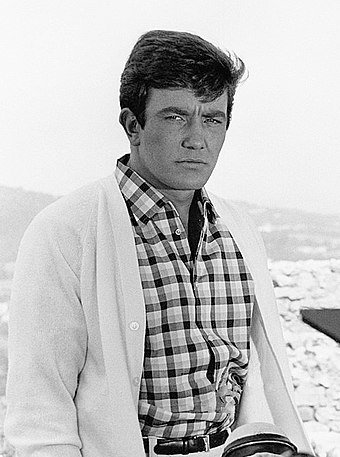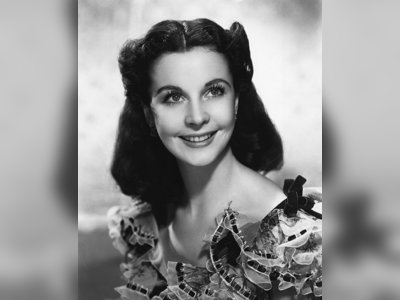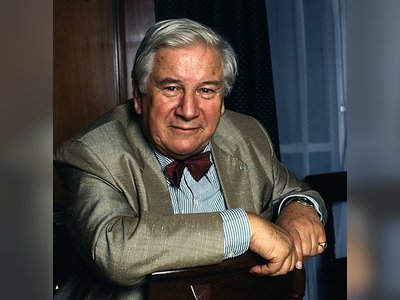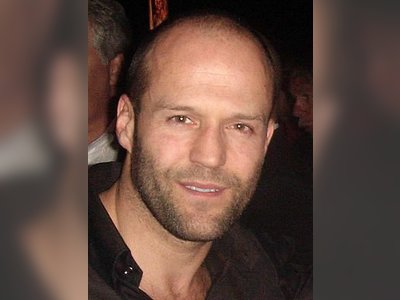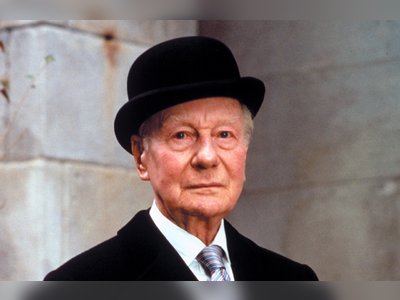British Heritage
Remember, Cherish, Learn.
beta
Albert Finney - A Not So Angry Young Man
Contribution to British Heritage.
Albert Finney, an English actor, was a prominent figure in the world of theatre, film, and television during the 20th and early 21st centuries. Born on May 9, 1936, in Salford, Lancashire, Finney's career spanned over six decades, leaving a lasting legacy in British cultural heritage. Trained at the prestigious Royal Academy of Dramatic Art (RADA), he was part of a generation of talented actors known as the "Angry Young Men," who challenged the conventions of British post-war theatre. While he may not have attained the pinnacle of stardom that some had predicted for him in his early years, his contribution to British entertainment and acting was significant and inspiring.
Albert Finney's impact on British heritage can be best seen through his versatile and acclaimed performances in a wide range of theatrical productions, films, and television shows. His early breakthrough on screen came in 1960 when he portrayed a disillusioned factory worker in Karel Reisz's film adaptation of Alan Sillitoe's "Saturday Night and Sunday Morning." The film was a box-office hit, and Finney's remarkable acting garnered attention and praise from audiences and critics alike.
In 1963, Finney achieved worldwide recognition for his portrayal of the charming and rambunctious title character in "Tom Jones," a film directed by Tony Richardson and based on Henry Fielding's novel. The success of "Tom Jones" propelled Finney into the ranks of top British actors and solidified his place in cinematic history. The film's popularity, coupled with Finney's talent, earned him the ninth spot on the list of the most popular stars at the British box office that year. Furthermore, his performance in "Tom Jones" led to a remarkable milestone in his career, as he received ten percent of the film's earnings, making him over a million dollars at the time.
Finney's contributions to British heritage were not limited to the silver screen. He also made significant contributions to British theatre, captivating audiences with his performances on both the West End stage and at the Royal National Theatre in London. He earned Tony Award nominations for his roles in John Osborne's "Luther" and Peter Nichols' "A Day in the Death of Joe Egg." Moreover, he won an Olivier Award for his outstanding performance in the play "Orphans" in 1986. These achievements showcased his exceptional acting abilities and further cemented his status as one of Britain's finest talents.
Throughout his illustrious career, Albert Finney received numerous accolades and awards, including BAFTA, Golden Globe, and Emmy awards. His portrayal of Winston Churchill in the 2002 BBC–HBO television film "The Gathering Storm" earned him critical acclaim and earned him a BAFTA, Emmy, and Golden Globe award for Best Actor. These prestigious honors are a testament to his immense talent and enduring impact on British entertainment.
Although Finney declined the offer of a CBE (Commander of the Most Excellent Order of the British Empire) in 1980 and a knighthood in 2000, his work and dedication to the craft of acting brought him widespread admiration and respect from his peers and audiences. His refusal of such honors reflected his disdain for what he perceived as the perpetuation of social hierarchy and snobbery.
Albert Finney's lasting legacy is not only in the art of acting but also in the inspiration he provided to generations of British actors. He exemplified the spirit of the "Angry Young Men" of his time, pushing the boundaries of traditional British theatre and leaving an indelible mark on the world of entertainment. His performances continue to resonate with audiences worldwide, ensuring that his contributions to British heritage remain celebrated and cherished for generations to come.
Albert Finney, born on May 9, 1936, in Salford, Lancashire, was a distinguished English actor who made a remarkable impact in the world of entertainment. After completing his education at the Royal Academy of Dramatic Art (RADA) in 1956, Finney embarked on a successful career in theatre, film, and television.
His breakthrough on the big screen came in 1960 when he starred in Karel Reisz's adaptation of Alan Sillitoe's "Saturday Night and Sunday Morning," portraying the role of a disillusioned factory worker. The film's commercial success and critical acclaim elevated Finney's status as a rising star. He followed this with his iconic performance as the playful and charismatic "Tom Jones" in the 1963 film adaptation of Henry Fielding's novel, directed by Tony Richardson. The film garnered international acclaim, earning Finney an Academy Award nomination for Best Actor.
Albert Finney's talents extended beyond the silver screen, as he demonstrated his theatrical prowess in notable stage productions. He received Tony Award nominations for his roles in John Osborne's "Luther" and Peter Nichols' "A Day in the Death of Joe Egg." Additionally, he won an Olivier Award for his captivating performance in the play "Orphans" in 1986.
Throughout his illustrious career, Finney showcased his versatility by seamlessly transitioning between drama and comedy, earning widespread recognition for his acting prowess. He received numerous prestigious awards, including BAFTA, Golden Globe, and Emmy awards. His portrayal of Winston Churchill in the 2002 television film "The Gathering Storm" earned him critical acclaim and accolades, including a BAFTA, an Emmy, and a Golden Globe for Best Actor.
In addition to his acting career, Albert Finney was involved in producing and directing. He co-founded the production company Memorial Productions with Michael Medwin, which produced several notable films. Finney directed the film "Charlie Bubbles" (1968), in which he also starred, and received praise for his efforts as a director.
Despite achieving great success, Finney remained committed to his craft and continued to work in both stage and film productions. His passion for acting and dedication to his roles earned him admiration and respect from colleagues and audiences alike. Throughout his career, Finney remained a prominent and influential figure in the entertainment industry, inspiring aspiring actors and leaving an enduring legacy that continues to enrich British heritage.
Albert Finney's contribution to British heritage is indelible, leaving a profound impact on the world of entertainment that continues to resonate with audiences to this day. As part of the esteemed "Angry Young Men," Finney challenged traditional British post-war theatre conventions, bringing a fresh perspective to the stage and screen. His remarkable talent and versatility allowed him to seamlessly transition between dramatic and comedic roles, captivating audiences with every performance.
His early breakthrough in "Saturday Night and Sunday Morning" showcased his ability to embody complex characters and earned him critical acclaim. However, it was his portrayal of the roguish and amiable "Tom Jones" that catapulted him to international stardom. The film's success not only secured Finney's place among the leading British actors of his time but also solidified his status as a prominent figure in British cinematic history.
Beyond the silver screen, Finney's contributions to British heritage extended to the stage, where he showcased his theatrical prowess in both classic and contemporary plays. His Tony Award-nominated performances in "Luther" and "A Day in the Death of Joe Egg" demonstrated his ability to embody diverse characters with depth and authenticity.
Finney's commitment to his craft and his desire to explore different facets of the entertainment industry were evident in his
work as a director and producer. His involvement with Memorial Productions allowed him to participate in the creative process behind the camera, showcasing his multifaceted talents.
Throughout his career, Finney received numerous prestigious awards and honors, including BAFTA, Golden Globe, and Emmy awards. His portrayal of Winston Churchill in "The Gathering Storm" earned him critical acclaim and further cemented his reputation as a consummate actor.
Despite achieving worldwide recognition and success, Finney remained grounded and true to his art, refusing to accept titles and honors bestowed by the British monarchy. His dedication to his craft and his unwavering commitment to quality acting serve as an inspiration to aspiring actors and a testament to his integrity.
Albert Finney's legacy lives on through his timeless performances, which continue to be celebrated and cherished by audiences worldwide. His contributions to British heritage not only shaped the landscape of British entertainment but also inspired generations of actors to strive for excellence in their craft. As a versatile and accomplished actor, director, and producer, Finney will forever be remembered as a not so angry young man who left an indelible mark on British culture and the world of entertainment.
Albert Finney's impact on British heritage can be best seen through his versatile and acclaimed performances in a wide range of theatrical productions, films, and television shows. His early breakthrough on screen came in 1960 when he portrayed a disillusioned factory worker in Karel Reisz's film adaptation of Alan Sillitoe's "Saturday Night and Sunday Morning." The film was a box-office hit, and Finney's remarkable acting garnered attention and praise from audiences and critics alike.
In 1963, Finney achieved worldwide recognition for his portrayal of the charming and rambunctious title character in "Tom Jones," a film directed by Tony Richardson and based on Henry Fielding's novel. The success of "Tom Jones" propelled Finney into the ranks of top British actors and solidified his place in cinematic history. The film's popularity, coupled with Finney's talent, earned him the ninth spot on the list of the most popular stars at the British box office that year. Furthermore, his performance in "Tom Jones" led to a remarkable milestone in his career, as he received ten percent of the film's earnings, making him over a million dollars at the time.
Finney's contributions to British heritage were not limited to the silver screen. He also made significant contributions to British theatre, captivating audiences with his performances on both the West End stage and at the Royal National Theatre in London. He earned Tony Award nominations for his roles in John Osborne's "Luther" and Peter Nichols' "A Day in the Death of Joe Egg." Moreover, he won an Olivier Award for his outstanding performance in the play "Orphans" in 1986. These achievements showcased his exceptional acting abilities and further cemented his status as one of Britain's finest talents.
Throughout his illustrious career, Albert Finney received numerous accolades and awards, including BAFTA, Golden Globe, and Emmy awards. His portrayal of Winston Churchill in the 2002 BBC–HBO television film "The Gathering Storm" earned him critical acclaim and earned him a BAFTA, Emmy, and Golden Globe award for Best Actor. These prestigious honors are a testament to his immense talent and enduring impact on British entertainment.
Although Finney declined the offer of a CBE (Commander of the Most Excellent Order of the British Empire) in 1980 and a knighthood in 2000, his work and dedication to the craft of acting brought him widespread admiration and respect from his peers and audiences. His refusal of such honors reflected his disdain for what he perceived as the perpetuation of social hierarchy and snobbery.
Albert Finney's lasting legacy is not only in the art of acting but also in the inspiration he provided to generations of British actors. He exemplified the spirit of the "Angry Young Men" of his time, pushing the boundaries of traditional British theatre and leaving an indelible mark on the world of entertainment. His performances continue to resonate with audiences worldwide, ensuring that his contributions to British heritage remain celebrated and cherished for generations to come.
Success and General Info
Albert Finney, born on May 9, 1936, in Salford, Lancashire, was a distinguished English actor who made a remarkable impact in the world of entertainment. After completing his education at the Royal Academy of Dramatic Art (RADA) in 1956, Finney embarked on a successful career in theatre, film, and television.
His breakthrough on the big screen came in 1960 when he starred in Karel Reisz's adaptation of Alan Sillitoe's "Saturday Night and Sunday Morning," portraying the role of a disillusioned factory worker. The film's commercial success and critical acclaim elevated Finney's status as a rising star. He followed this with his iconic performance as the playful and charismatic "Tom Jones" in the 1963 film adaptation of Henry Fielding's novel, directed by Tony Richardson. The film garnered international acclaim, earning Finney an Academy Award nomination for Best Actor.
Albert Finney's talents extended beyond the silver screen, as he demonstrated his theatrical prowess in notable stage productions. He received Tony Award nominations for his roles in John Osborne's "Luther" and Peter Nichols' "A Day in the Death of Joe Egg." Additionally, he won an Olivier Award for his captivating performance in the play "Orphans" in 1986.
Throughout his illustrious career, Finney showcased his versatility by seamlessly transitioning between drama and comedy, earning widespread recognition for his acting prowess. He received numerous prestigious awards, including BAFTA, Golden Globe, and Emmy awards. His portrayal of Winston Churchill in the 2002 television film "The Gathering Storm" earned him critical acclaim and accolades, including a BAFTA, an Emmy, and a Golden Globe for Best Actor.
In addition to his acting career, Albert Finney was involved in producing and directing. He co-founded the production company Memorial Productions with Michael Medwin, which produced several notable films. Finney directed the film "Charlie Bubbles" (1968), in which he also starred, and received praise for his efforts as a director.
Despite achieving great success, Finney remained committed to his craft and continued to work in both stage and film productions. His passion for acting and dedication to his roles earned him admiration and respect from colleagues and audiences alike. Throughout his career, Finney remained a prominent and influential figure in the entertainment industry, inspiring aspiring actors and leaving an enduring legacy that continues to enrich British heritage.
Legacy
Albert Finney's contribution to British heritage is indelible, leaving a profound impact on the world of entertainment that continues to resonate with audiences to this day. As part of the esteemed "Angry Young Men," Finney challenged traditional British post-war theatre conventions, bringing a fresh perspective to the stage and screen. His remarkable talent and versatility allowed him to seamlessly transition between dramatic and comedic roles, captivating audiences with every performance.
His early breakthrough in "Saturday Night and Sunday Morning" showcased his ability to embody complex characters and earned him critical acclaim. However, it was his portrayal of the roguish and amiable "Tom Jones" that catapulted him to international stardom. The film's success not only secured Finney's place among the leading British actors of his time but also solidified his status as a prominent figure in British cinematic history.
Beyond the silver screen, Finney's contributions to British heritage extended to the stage, where he showcased his theatrical prowess in both classic and contemporary plays. His Tony Award-nominated performances in "Luther" and "A Day in the Death of Joe Egg" demonstrated his ability to embody diverse characters with depth and authenticity.
Finney's commitment to his craft and his desire to explore different facets of the entertainment industry were evident in his
work as a director and producer. His involvement with Memorial Productions allowed him to participate in the creative process behind the camera, showcasing his multifaceted talents.
Throughout his career, Finney received numerous prestigious awards and honors, including BAFTA, Golden Globe, and Emmy awards. His portrayal of Winston Churchill in "The Gathering Storm" earned him critical acclaim and further cemented his reputation as a consummate actor.
Despite achieving worldwide recognition and success, Finney remained grounded and true to his art, refusing to accept titles and honors bestowed by the British monarchy. His dedication to his craft and his unwavering commitment to quality acting serve as an inspiration to aspiring actors and a testament to his integrity.
Albert Finney's legacy lives on through his timeless performances, which continue to be celebrated and cherished by audiences worldwide. His contributions to British heritage not only shaped the landscape of British entertainment but also inspired generations of actors to strive for excellence in their craft. As a versatile and accomplished actor, director, and producer, Finney will forever be remembered as a not so angry young man who left an indelible mark on British culture and the world of entertainment.
- Albert Finneyen.wikipedia.org
